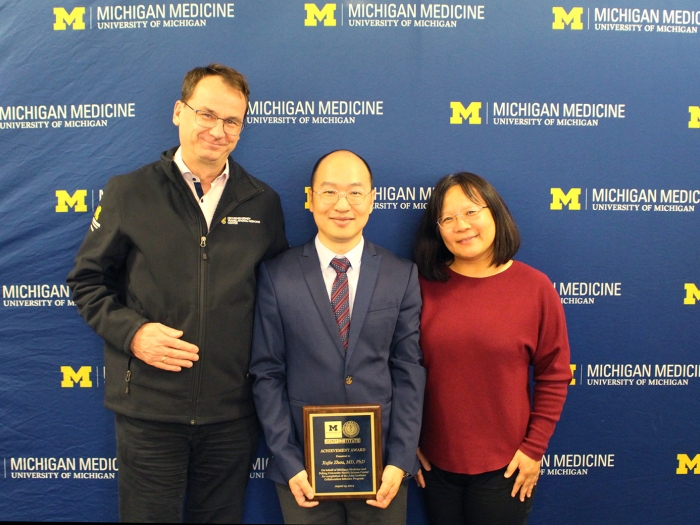The Joint Institute brings together researchers from Michigan Medicine and Peking University Health Science Center for high-impact research to advance medicine in the U.S. and China.


2024 Request for Proposals
JI leaders are proud to announce the next call for joint proposals that advance robust collaborations between Michigan Medicine and PKUHSC. Proposals should have the potential to lead to transformative science and future extramural funding and must be jointly put forth by Co-Principal Investigators who are full-time faculty at U-M Medical School (UMMS) and PKUHSC.
Drs. Anna Lok (Michigan Medicine) and Lai Wei (PKUHSC) describe their collaboration, which strives to identify genetic markers that predict the progression from chronic HCV infection to cirrhosis and HCC, and to identify and validate blood markers of liver fibrosis and early HCC in patients.
Drs. Cristen Willer (Michigan Medicine) and Ming Xu (PKUHSC) discuss their joint research project examining Chinese individuals with MI to test whether the same variants and genes identified in Europeans are also associated in Asian individuals.

